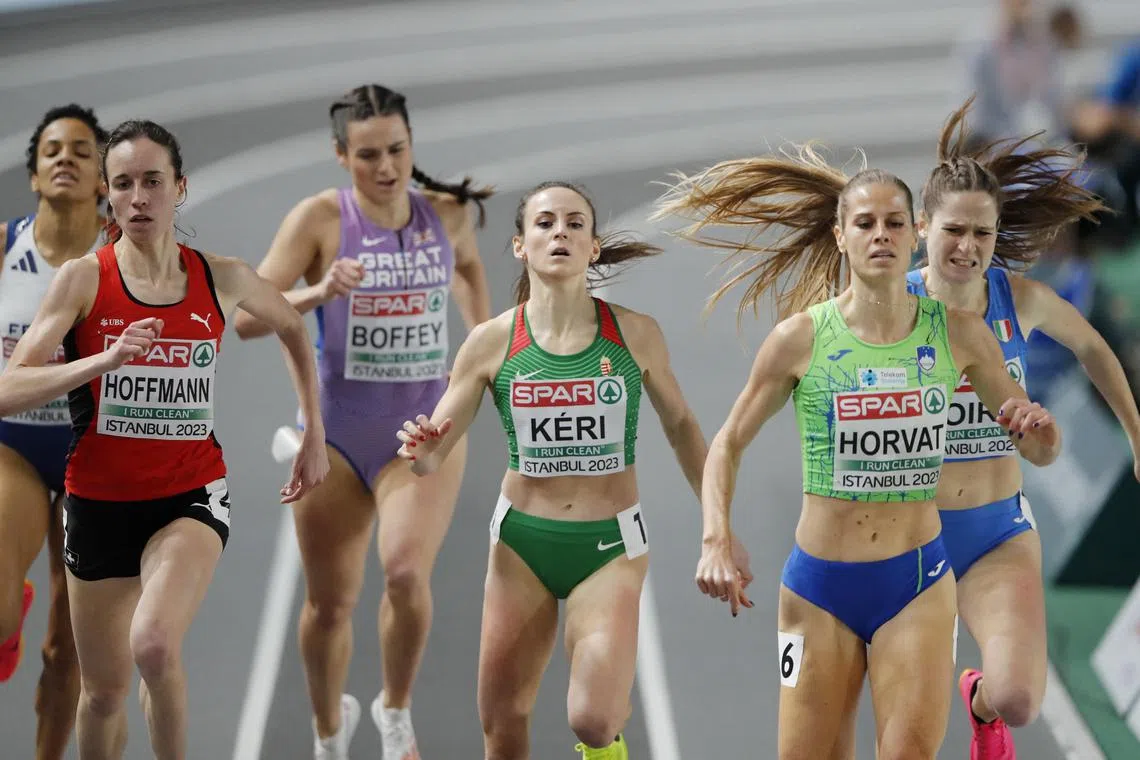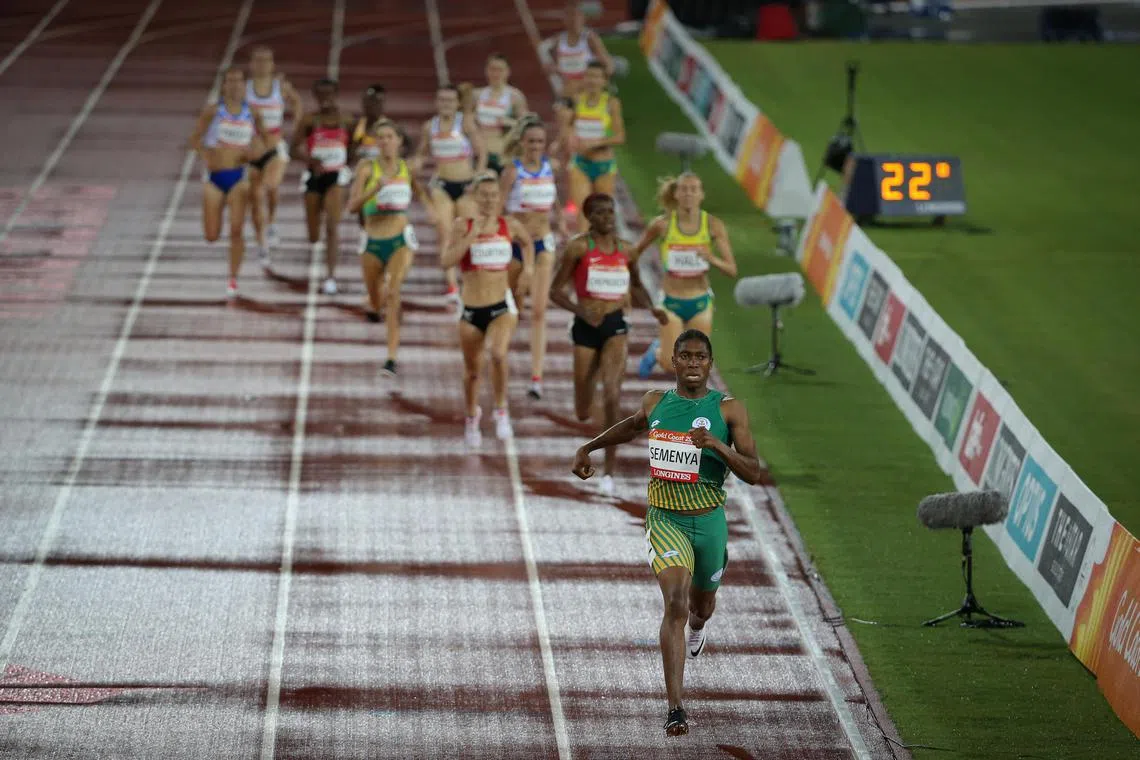Athletics: Transgender athletes condemn ban on inclusion in female events
Sign up now: Get the biggest sports news in your inbox

World Athletics' decision to exclude transgender women was based “on the overarching need to protect the female category”.
PHOTO: REUTERS
LOS ANGELES – Transgender athletes have condemned World Athletics’ (WA) exclusion of transgender women from elite female competitions, while the decision was welcomed by some sportswomen as a win for fairness.
Athletics’ global governing body on Thursday voted to ban transgender women who have gone through male puberty from competing in women’s events, citing a “need to protect the female category”.
Canadian cyclist Kristen Worley, a transitioned athlete who has legally challenged the gender policies of the International Olympic Committee (IOC), said the WA decision was “disheartening and disappointing”.
“What’s happening is that the most vulnerable are being excluded from sport more for political reasons and not based on science and research,” she said.
“This has effects not just at the international levels but consequently over communities across the globe including communities in the United States.”
The decision follows a similar move by World Aquatics to exclude transgender athletes from women’s categories in 2022.
WA president Sebastian Coe said the decision was made after consulting 40 member federations, coaches, athletes, transgender groups, United Nations experts and the IOC.
But he also announced the formation of a working group, which will be chaired by a transgender athlete, to further study the issue of trans inclusion in future.
While some argue that going through male puberty gives transgender women physical advantages, supporters of transgender participation in sports say not enough research has been done into that aspect.
Worley added that the notion that transgender athletes were dominating women’s sport was nonsense.
“I’m watching all the news groups put out images on Twitter with no images of transitioned athletes at the elite levels because there aren’t any,” she said.
“So this is purely a political move by Seb Coe and World Athletics to deal with the right-wing issues, political relationships and obviously potential sponsors that are funding World Athletics today.”
Ricki Coughlan, one of Australia’s first transgender athletes in professional running, said WA’s ruling would embolden the “forces of hate” against transgender people.
“There’s no nice way of putting this,” she said.
“Those that don’t want transgender people to exist in our society... will take this as a win.”
However, a number of elite women in track and field welcomed the WA decision, including British runner and Olympian Emily Diamond, who tweeted “Thank you for following the science”.
“A big step for fairness and protecting the female category, hopefully this will be the rule across all levels now, not just elite ranking events,” she wrote.
Olympian and marathon runner Mara Yamauchi also tweeted: “Good news! Odd to celebrate something which is common sense.”
Save Women’s Sport Australasia, a group campaigning against transgender athletes in female sport, applauded the decision.
“It’s not a ban, it just actually moves to protect the female category to female competitors and it was an excellent decision,” spokesman Ro Edge said.
“So it’s really reassuring to hear president Seb Coe come out and say they’ve got to maintain fairness of female participation above all other considerations.”
WA also tightened eligibility requirements for athletes with Differences in Sex Development (DSD) in women’s events, halving the upper threshold of testosterone levels to 2.5 nanomoles per litre from five for a minimum of 24 months.
DSD athletes – like in the case of two-time Olympic 800m champion Caster Semenya – have male testes but do not produce enough of the hormone dihydrotestosterone (DHT) that is necessary for the formation of male external genitalia.

A 2018 photo shows South Africa’s Caster Semenya finishing in first place in the women’s 1500m final at Gold Coast Commonwealth Games.
ST FILE PHOTO
On a separate issue, WA has voted to end its seven-year doping ban of the Russian Athletics Federation (Rusaf) but the country’s athletes, and those of Belarus, will remain excluded from international competition because of an ongoing suspension over the invasion of Ukraine.
The IOC is exploring ways to enable athletes from those nations to compete as neutrals at the 2024 Paris Olympics but Coe said they would remain ineligible in athletics.
Rusaf was banned in late 2015 after the discovery of massive, state-sponsored doping and related cover-ups and a failure to meaningfully address the issue meant that the suspension remained in place until now. REUTERS, AFP


